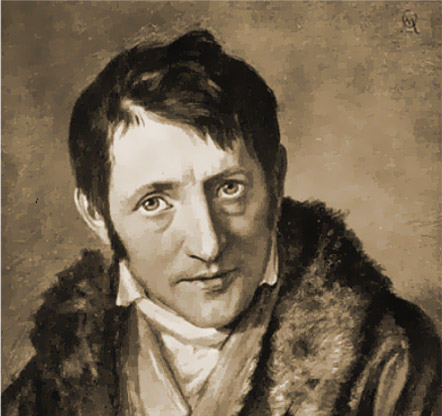Ludwig Börne was born - as Juda Löw Baruch - in 1786 into a wealthy banking family in the Frankfurt Ghetto. In 1811, taking advantage of the Napoleonic emancipatory legislation, he took a position in the administration of Frankfurt's police records. In 1815, when these laws was revoked, Börne lost his job. For the rest of his life, despite his conversion to Protestantism in 1819, he made his living as an outsider: a freelance writer, journalist and political radical. He rushed to Paris when revolution broke out there in July 1830, and lived there almost continually, in effective exile, until his death in 1837.
Börne decisively rejected his religious upbringing, and his writings include plenty of hostile comments about Jews, and particularly about Jewish commerce. However, far from being a 'self-hating Jew,' Börne was keenly aware of the Jews' political vulnerability. He understood this, however, within a wider context of class relations between the ruling elite and the oppressed masses, between whom the Jews, because of their intermediary economic role, were precariously squeezed, serving elites as a protective shield. Börne's political thought was characterized by a striking clarity concerning power relations in society, an engaged realism, a commitment to economic and political justice, and a loosely messianic sense of impending transformation. In all of these aspects his ideas were profoundly shaped by his Jewish background.
